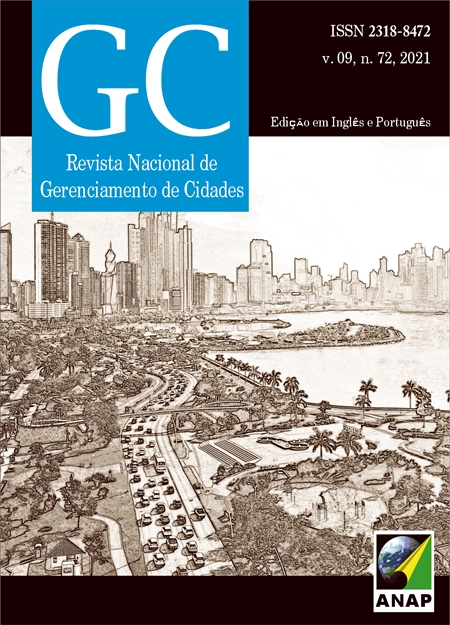A brief study of public transportation and sustainable cities management during COVID-19 pandemic
DOI:
https://doi.org/10.17271/2318847297220212965Keywords:
Public Transportation. Urban Mobility. Urban Management.Abstract
This paper aims to analyse the measures adopted in Brazilian State Capitals and the Federal District, since the beginning of the pandemic, to ensure safety conditions in public transport against the possible contagion of COVID-19, suggesting sustainable actions aligned to SDG 11 - Sustainable Cities and Communities for the post-COVID future. Based on relevant data from March to July 2020, acquired from journals, newspapers, and municipal and governmental decrees, it was possible to identify measures adopted for public transportation during the first COVID-19 wave in Brazil. The results demonstrate that it is necessary to create a strategy and map the extent of population mobility in public transport. These information is essential for predicting risk areas, making decisions, and establishing effective control mechanisms. Innovative and sustainable urban mobility requires clear policies and cooperation between public authorities and private transportation companies and investment in public roads and infrastructure and sustainable actions aligned with SDG 11 - Sustainable Cities and Communities for the post-COVID future.















